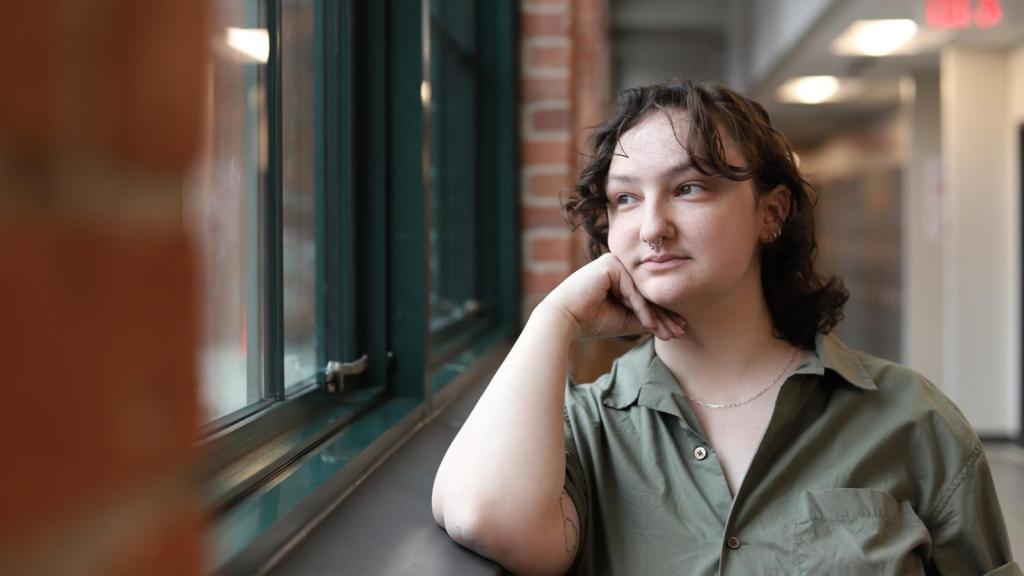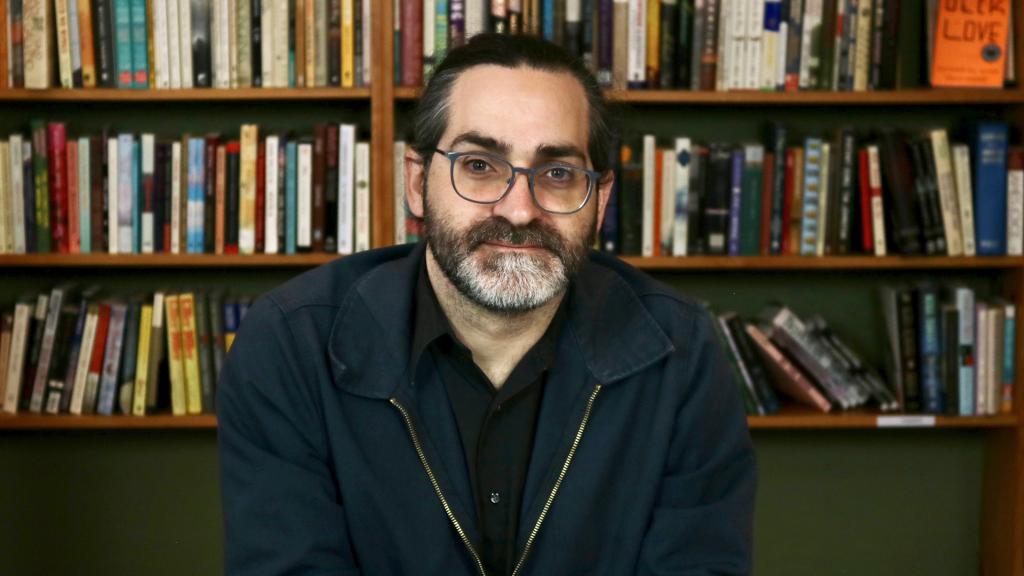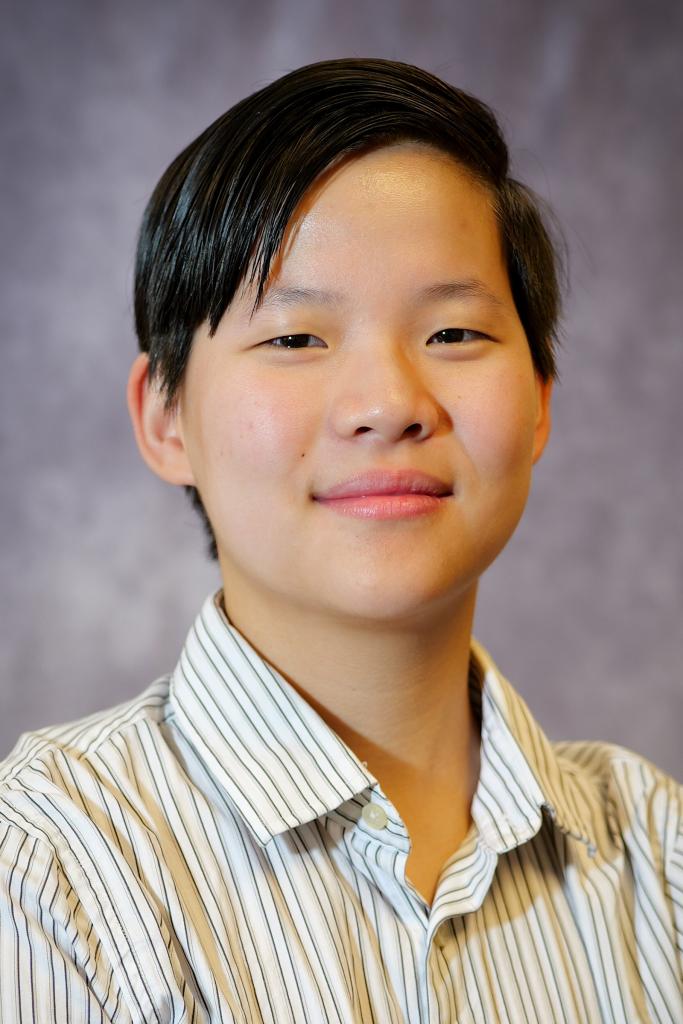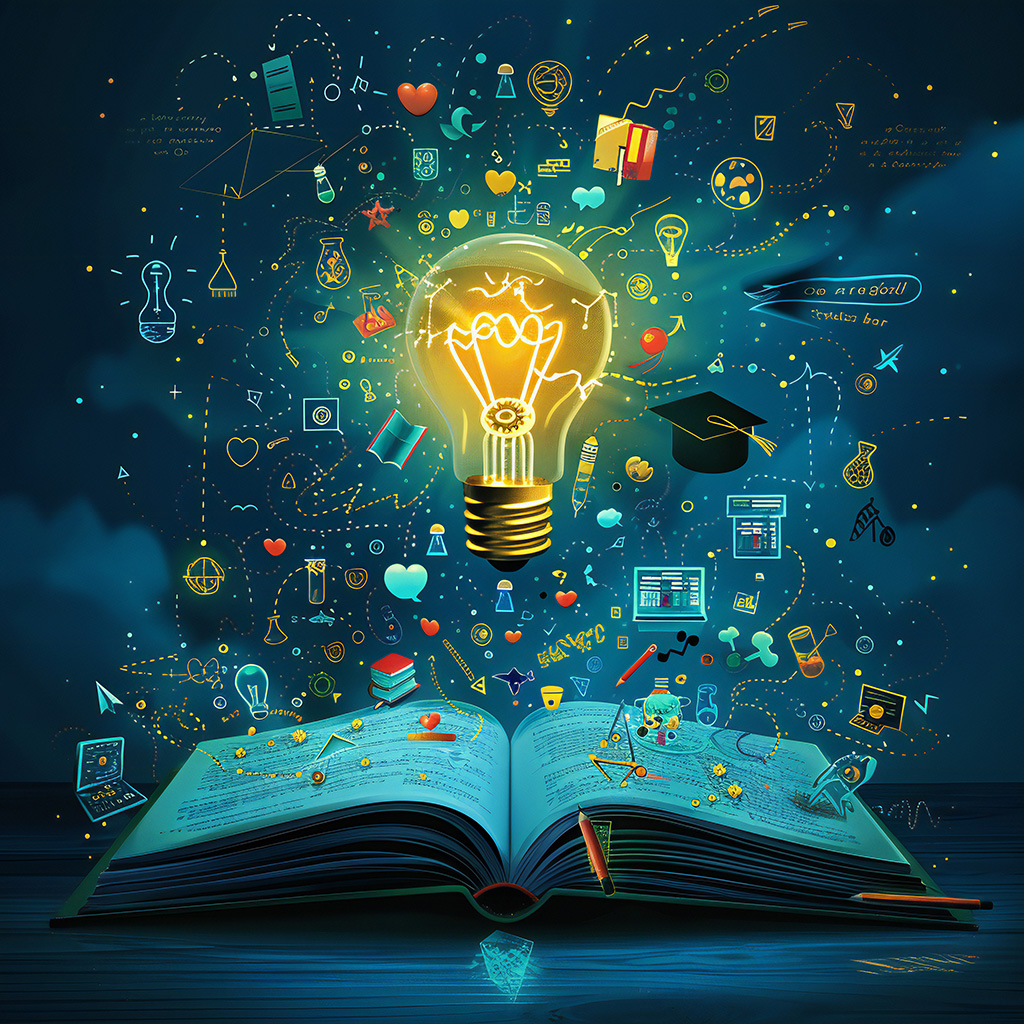Why a Georgia Tech Education is Unique Training for Poets, Writers, and Creatives

Like thousands before him, Andrew Saulters was drawn to Georgia Tech by the strength of its engineering program. But after graduation, he took — to paraphrase the old poet — the path less traveled.
Instead of making rocket engines better or keeping a new airplane design on track, Saulters became a poet, a teacher, and a publisher, thanks in large measure to his exposure to poetry through Poetry@Tech, a unit of Georgia Tech’s School of Literature, Media, and Communication.
“I entered school with the idea that you’re either good at something technical or you’re good at something artful. My experience at Georgia Tech showed me that was an incorrect assumption,” Saulters said in an interview ahead of Poetry@Tech’s second annual celebration of National Poetry Month in April.
Saulters’ experience may be unusual, but it’s not unique. In fact, Georgia Tech’s rigorous academics, culture of innovation, and intense work ethic offer a unique training ground for would-be creatives looking to forge unconventional paths in an increasingly technological world, said alum Victoria Chan, LMC 2023, who is now pursuing a Master of Fine Arts (MFA) at the University of Maryland.
“The Literature, Media, and Communication program teaches you to be OK with uncertainty,” Chan said. “The interdisciplinary nature at Tech was also enormously helpful. While today I’m only in conversation with people who are doing lit stuff, in my time at Tech I was constantly engaging with people on very different trajectories.”
April is National Poetry Month
We’re excited to be spreading the word about poetry all month long. This year, we’re adding flash book drops to the fun! Keep an eye on LMC’s Instagram channel for details. Also, look for the yard signs across campus, visit the Library to explore a curated selection of poetry books, and consider checking out our National Poetry Month Open Mic night on April 3. For more information, check out the Poetry@Tech National Poetry Month web page.
From Equations to Stanzas

Saulters traces his love for poetry to, unsurprisingly, something that sounds a bit “engineerish,” even if it is a core concept in poetry: “a desire for compression.”
“What is it that causes somebody to not want paragraphs?” he mused. “That's sort of the spot that I found myself in.”
He had always been interested in literature, a focus he honed while working alongside students from biomedical engineering, electrical engineering, and other fields to produce the Georgia Tech literary magazine, Erato.
“I found community there, people bringing in interests from every direction and being encouraged,” Saulters said.
Saulters also credits Poetry@Tech founder Thomas Lux, who passed away in 2017 after 15 years teaching at Georgia Tech, for encouraging his passions — even as Saulters embraced the grind toward a degree in aerospace engineering.
Lux didn’t tell Saulters to study poetry. Instead, “he did the sort of thing that teachers, I think, should do, which is to say, ‘So this assumption that you have about what you can't do is maybe incorrect. And if you want to do that other thing, then maybe you should honor that in some way,’” Saulters said.
Honoring that meant earning an MFA from the University of North Carolina at Greensboro in 2008 and becoming the editor of Unicorn Press, which publishes contemporary poetry. He has also taught at Guilford College and at UNCG, where today he is a lecturer.
Saulters is a fierce proponent of following knowledge not just for the paycheck it can provide, but also simply out of intellectual curiosity.
“There's no one reading that book with you, there is nobody testing you on it, you don't have to write about it. You're just inflamed by the idea of the possibility of poetry mattering and the question that it maybe doesn't. That's a reading experience that I have often,” he said.
He says poetry is perhaps more relevant now than it ever has been, even if a lot of people don’t realize that.
“In the circumstances that we find ourselves encountering the world now, where our attention is incentivized to go from one thing to another very quickly, poetry can reach us in a way that perhaps other things can't,” he said.
Fostering a Love of Words

While the B.S.-to-MFA route remains rare at Georgia Tech, it’s not entirely unusual to see LMC students interested in the graduate degree, which can help set up students for careers in writing, publishing, teaching, and other fields.
Chan, who earned her B.S. in Literature, Media, and Communication in 2023, wasn’t really a poetry fan when she got to Georgia Tech. She wanted to become a journalist. But after taking poetry workshops with Ilya Kaminsky, the former Margaret T. and Henry C. Bourne, Jr. Chair in Poetry, and Travis Denton, Poetry@Tech’s associate director, things changed, and drastically.
“In Professor Kaminsky's class, he was really pushing us to read every day and read anyone and everything. And I was, ‘OK, I'll take him up on that challenge.’ I think doing so really helped me grow not just as a reader, but also as a writer".
This led Chan to seek out more workshops and quickly come to a realization: "I cannot imagine myself not doing workshops for the rest of my life and working with poetry."
Another recent grad pursuing the MFA route is Tess Conner, who also earned the LMC degree in 2023. Conner is teaching as part of an AmeriCorps program.
Conner had an interest in writing on arriving at Georgia Tech, but they were also interested in film and screenwriting — all threads students can pursue with the Literature, Media, and Communication degree. Conner had always written poetry, largely as a means of self-exploration, but it wasn’t until their fourth year at Georgia Tech, again after workshops run by Denton and former Associate Professor Katie Ferris, that it emerged as a serious professional interest.
“I could kind of see myself being a creative writing professor, being the person who facilitated those workshops. That idea really intrigued me,” Conner said.
Learning Poetry at an ‘Engineering School’
Studying literature and poetry as an undergraduate at a leading research university best known for engineering might seem counterintuitive to some. But it seems employers may be looking more and more for the exact skills a liberal arts education can provide better than any other.
And while an MFA is unlikely to land on a Top 10 list of degrees that guarantee fat paychecks, the intangible skills that come with learning to read, assess ideas, and communicate persuasively and movingly can certainly lead to good outcomes, said current Bourne Chair Victoria Chang.
“Writing and critical thinking is more valuable than ever, and an MFA can lead to a good job,” Chang said “It can also lead to success in the writing world as an editor, publisher, or writer. Novelists can have good advances and poets like myself get paid honorariums for reading.”
Conner added that a liberal arts education at Georgia Tech also equips graduates to serve as “bridges” between technical practitioners and the rest of us.
“People in STEM are going to need people who can communicate with other humans and who can write. LMC is a good place to learn how to be that bridge,” Conner said.
At the end of the day, Conner said, it’s about doing something you love in a world that seems unsteady — no matter what degree you get.
“There can be instability in any job so you might as well do something you love,” Conner said. “And that passion can make a difference in your success.”
Chang and Denton say they’re always glad to work with students interested in applying to an MFA program. Their advice? Take all the literature and writing courses you can and read and write like your life depends on it.
Learn More About LMC's Poetry@Tech

Poetry@Tech is one of the most well-known poetry organizations in the country. Founded in 2001 under the leadership of acclaimed poet Thomas Lux, its mission is to bring high-profile and celebrated poets, as well as new and exciting voices, to Atlanta, and to share the art of poetry with Georgia Tech students and communities across Georgia.
Explore the B.S. in Literature, Media, and Communication

The B.S. in Literature, Media, and Communication (LMC) offers a vibrant and versatile humanities education in the different modes of representation that structure our technological and global world.
Concentrations include literature; communication; design; media; social justice; and science, technology, and culture.
Looking for an elective? Consider poetry!

Poetry courses are regularly offered through the School of Literature, Media, and Communication and are popular with students across campus.
LMC 3204 — Poetry and Poetics: A study of traditions of poetic practice and poetic theory in English through intensive line by line readings of poems from different periods in literary history.
LMC 4204 — Poetry and Poetics II: Advanced study of the traditions of poetic theory and practice with a special emphasis on processes of poetic conception and revision.
